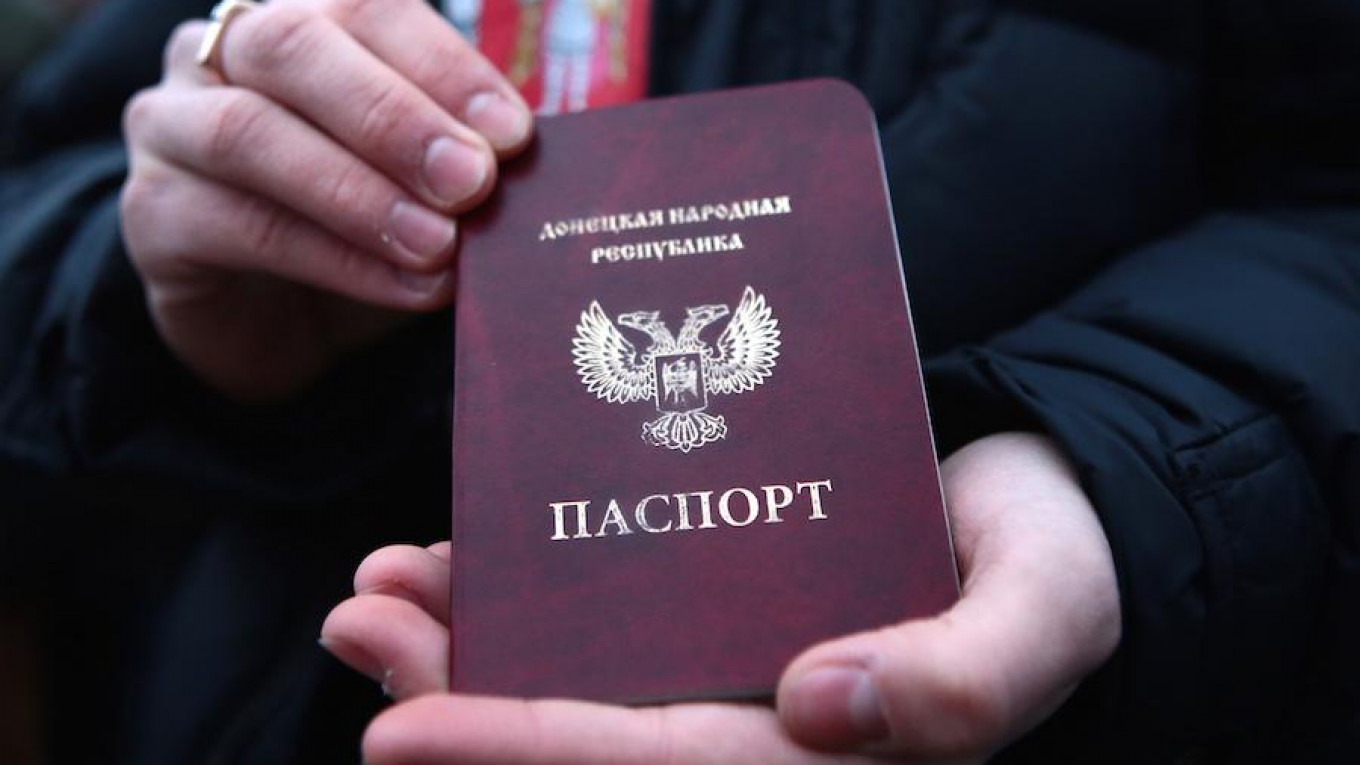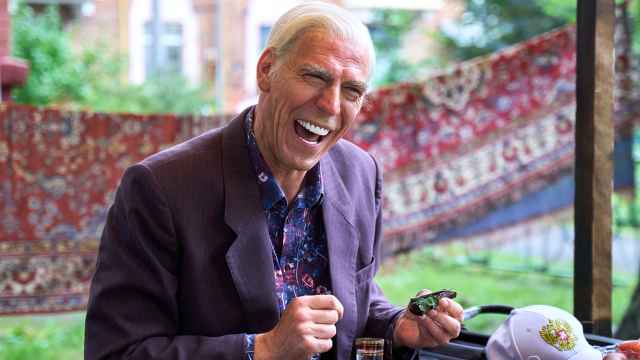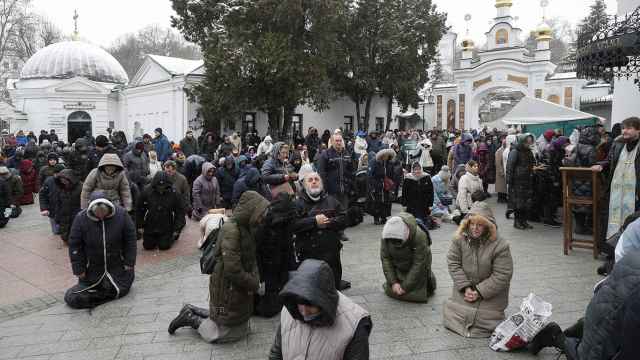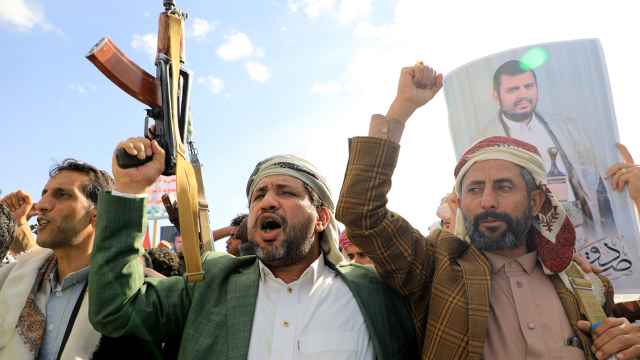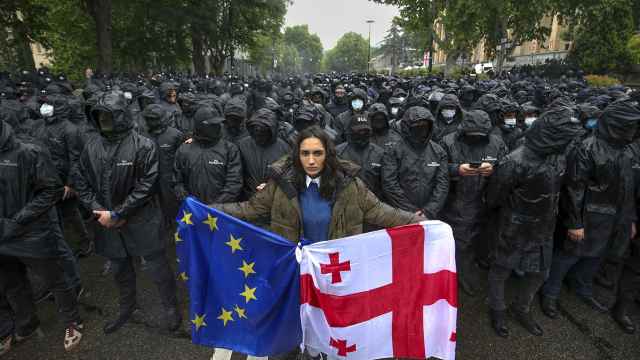In a dramatic move intended to put pressure on Kiev and the West, President Vladimir Putin signed a decree on Saturday granting official recognition to documents issued by the authorities of the self-proclaimed breakaway republics in eastern Ukraine. It is not entirely clear that Russian leaders and diplomats thoroughly weighed the possible consequences of their actions.
Russia had already granted unofficial recognition of documents issued by the self-declared People’s Republics of Donetsk and Luhansk. Due to their isolation from Kiev, residents of Donbass whose Ukrainian documents had expired or who had come of age during the last three years encountered legal problems and effectively became stateless.
Those who do have valid Ukrainian documents have difficulty carrying out certain transactions, acts of civil status and obtaining transportation or education services. By granting official recognition to documents issued by the authorities of those self-proclaimed republics, Moscow permits individuals official entry into Russia.
The fact that Moscow officially granted temporary recognition is a signal to Kiev and the West.
The problem could come in how that signal is interpreted. Moscow probably wants the West to force Kiev to fulfill the Minsk agreements as Russia sees them – by first holding elections in the breakaway republics and then handing over control of their borders.
However, Putin’s decree gives Ukraine and the West new political grounds to take a tough stance toward Moscow. In a meeting in Munich with Ukrainian President Petro Poroshenko, U.S. Vice President Mike Pence confirmed Washington’s support for Ukraine and the need to hold Russia accountable for its actions in Ukraine.
It is quite possible Putin issued the decree out of frustration over the new U.S. administration’s position — this is the position taken by most experts. Others point to the recent military clashes in and around Avdiivka.
The Ukrainian military is slowly regaining control over the “gray zones” that Kiev held during the signing of the Minsk agreements, but that separatists occupied afterwards. A tit-for-tat move by Russian side would be too risky: negotiations with the United States are in an active phase and upcoming elections in Europe would force European leaders to react strongly.
The recognition of passports from the contested regions creates a loud bang for very little buck. But seeing it as step towards real recognition of the breakaway republics would be too much.
Not only would that recognition put an end to Moscow’s ongoing hopes of reaching an agreement with the United States. Moscow itself is more interested in achieving “hybrid” status for the LPR and DPR as part of Ukraine than in seeing them become independent republics.
Foreign relations analyst Vladimir Frolov also argues that Moscow is responding to Kiev’s creeping military advances by testing the West’s reaction without sticking its neck out too far. But the move is fraught with risk. If the reaction is harsh, Russia might have to mount a military response to the pressure on Donbass.
A Message from The Moscow Times:
Dear readers,
We are facing unprecedented challenges. Russia's Prosecutor General's Office has designated The Moscow Times as an "undesirable" organization, criminalizing our work and putting our staff at risk of prosecution. This follows our earlier unjust labeling as a "foreign agent."
These actions are direct attempts to silence independent journalism in Russia. The authorities claim our work "discredits the decisions of the Russian leadership." We see things differently: we strive to provide accurate, unbiased reporting on Russia.
We, the journalists of The Moscow Times, refuse to be silenced. But to continue our work, we need your help.
Your support, no matter how small, makes a world of difference. If you can, please support us monthly starting from just $2. It's quick to set up, and every contribution makes a significant impact.
By supporting The Moscow Times, you're defending open, independent journalism in the face of repression. Thank you for standing with us.
Remind me later.


